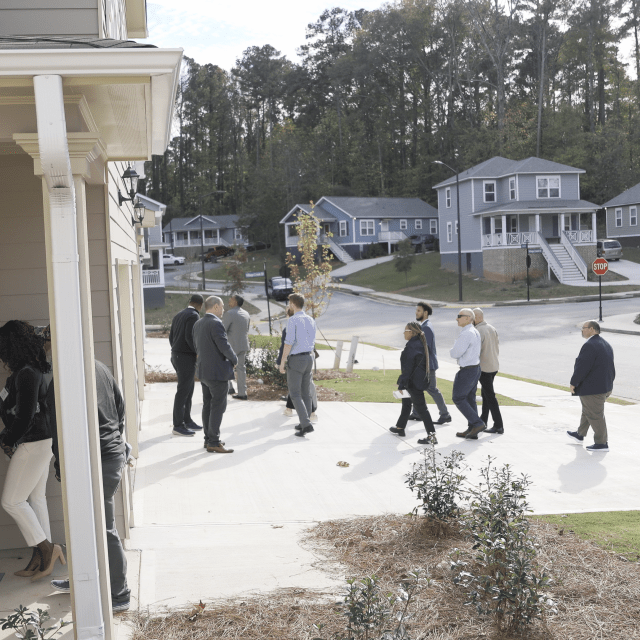Enterprise provides Section 4 capacity-building grants to community development corporations and community housing development organizations to support affordable housing programs, community development and organizational operations. We spoke to Tom White, director of Building Performance and Sustainability at Eden Housing, who shared reflections and lessons learned from their climate program, which was supported with Section 4 resources and funding.
Eden Housing works with cities and local community partners to develop and acquire family and senior housing in communities throughout California, serving a diverse population of 22,000 residents with low incomes. Eden is currently partnering with the U.S. Department of Energy and the U.S. Department of Housing and Urban Development's (HUD) Better Building and Better Climate Challenges to achieve a 50 percent reduction in greenhouse gas emissions (GHGs) from their existing portfolio.
Enterprise: How does the Section 4 grant build capacity in your organization?
Tom White: The HUD Section 4 grant builds our capacity to assess the greenhouse gas (GHG) emissions (CO2) from the diversity of building types in our portfolio. These assessments help us plan our GHG emission reduction strategies, including electrifying appliances throughout our portfolio to reduce GHG emissions and determining which heating, ventilation, and air conditioning (HVAC) and water heating systems emit the bulk of CO2 from the onsite combustion of natural gas.
Once we have that information and a clear picture of the existing electrical infrastructure in the residential and common areas, we can plan which combustion appliances are feasible to retrofit and replace with heat pumps. We determine which buildings undergo this process by using the U.S. Environmental Protection Agency's (EPA) Energy Star Portfolio Manager (ESPM) reports that quantify the properties emitting the most equivalent metric tons of CO2 from burning natural gas.
What are you hoping to achieve from the electrification process?
Once we complete the GHG assessments, electrification will be implemented based on the emission reduction plans from the feasibility analyses using data from the assessments. We are also looking to improve the efficiency of the building envelopes to lessen the amount of heating or cooling energy required. Since heat pumps are 200-400 percent efficient, meaning that they transfer 2 to 4 times more heating/cooling energy into the air or water than they use, we will identify which properties will be upgraded with heat pumps.
What are some challenges? What needs to be in place for you to succeed?
Our biggest challenges have been setting up our portfolio on ESPM and obtaining the utility benchmarking data. Other challenges include obtaining funding to implement the GHG assessments and electrification projects. Moving forward, having access to accurate energy usage benchmarking data from the ESPM and the utilities and support from the Department of Energy and the U.S. Department of Housing & Urban Development would greatly help our efforts in electrifying our portfolio.
Despite these challenges, the HUD Section 4 grant has been extremely valuable in funding these assessments, and I’m most proud of the Eden Housing staff who have initiated electrification projects at six properties.
With Section 4 resources and funding, Enterprise is proud to have supported Eden Housing and its efforts to reduce GHG emissions through electrification. Such funds continue to be a critical source for local organizations to build their capacity and expand their efforts in the affordable housing sector. Learn more about the Section 4 program and stay tuned for the Section 4 request for proposal release in Summer 2024.
For any questions or for more information on Section 4 and Enterprise’s efforts, please contact Ainsley Sanidad.

